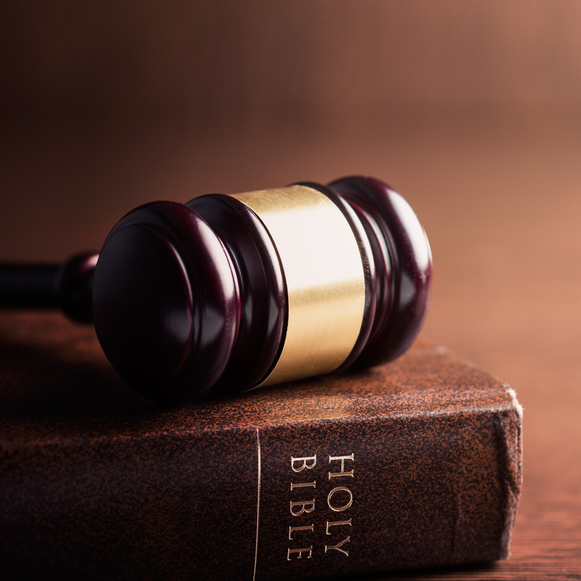Barrett's first SCOTUS opinion concurs in opening California churches with some restrictions

Image from Shutterstock.com.
U.S. Supreme Court Justice Amy Coney Barrett has written her first opinion, a concurrence in a decision Friday night that allowed California churches to host indoor religious services with some restrictions.
The Supreme Court allowed the church services during an appeal but said California could ban singing and chanting and could cap attendance at 25% of capacity. Ruling in two cases, the high court said the churches could still present evidence that the state is failing to enforce those limits across the board as they argue that all restrictions should be lifted.
SCOTUSblog, the Washington Post, the New York Times and Vox covered the decisions (here and here), while How Appealing links to additional coverage.
In a one-paragraph opinion joined by Justice Brett M. Kavanaugh, Barrett said the churches had the burden of proving that worshipers were entitled to sing and chant. Based on the record before the court, they didn’t meet the burden, Barrett said.
“Of course, if a chorister can sing in a Hollywood studio but not in her church, California’s regulations cannot be viewed as neutral,” Barrett said. “But the record is uncertain, and the decisions below unfortunately shed little light on the issue.”
Chief Justice John G. Roberts Jr. also wrote a concurring opinion stating his view that federal courts owe significant deference to politically accountable officials with the competence and expertise to assess public health.
But he said California’s complete ban on indoor worship services in a “Tier 1” high COVID-19 infection area “appears to reflect not expertise or discretion but instead insufficient appreciation or consideration of the interests at stake.”
Justices Clarence Thomas, Neil M. Gorsuch and Samuel A. Alito Jr. would have lifted all restrictions on religious services in California, but Alito would have allowed the 25% cap and ban on singing and chanting to remain in place for 30 days. The stay would then lift unless the state could show that nothing short of those measures would reduce the spread of COVID-19.
In a statement joined by Alito and Thomas, Gorsuch said California places more stringent restrictions on religious services than on businesses.
Justice Elena Kagan dissented in an opinion joined by Justices Stephen G. Breyer and Sonia Sotomayor. Kagan would have upheld all of California’s restrictions.
“Justices of this court are not scientists,” Kagan wrote. “Nor do we know much about public health policy. Yet today the court displaces the judgments of experts about how to respond to a raging pandemic.”
Kagan said California treats churches similarly to other activities in which large groups of people come together.
The cases are South Bay United Pentecostal Church v. Newsom and Harvest Rock Church v. Newsom.
Write a letter to the editor, share a story tip or update, or report an error.


